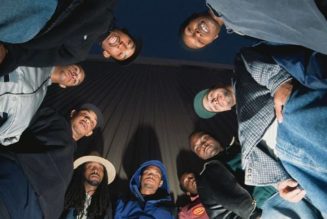
The home secretary, Suella Braverman, has described rough sleeping as a “lifestyle choice” while defending her decision to restrict the use of tents by homeless people on the streets of Britain.
According to Whitehall insiders, Braverman plans to crack down on tents that cause a nuisance in urban areas such as high streets – amid growing numbers of rough sleepers and what the government considers a rise in antisocial behaviour.
The home secretary has also proposed the introduction of a civil offence, which could lead to charities being fined if they provide homeless people with tents, the Financial Times reported.
Writing on X, formerly Twitter, Braverman defended her proposals, saying: “The British people are compassionate. We will always support those who are genuinely homeless. But we cannot allow our streets to be taken over by rows of tents occupied by people, many of them from abroad, living on the streets as a lifestyle choice.
“Unless we step in now to stop this, British cities will go the way of places in the US like San Francisco and Los Angeles, where weak policies have led to an explosion of crime, drug-taking, and squalor.
“Nobody in Britain should be living in a tent on our streets. There are options for people who don’t want to be sleeping rough, and the government is working with local authorities to strengthen wraparound support including treatment for those with drug and alcohol addiction.
“What I want to stop, and what the law-abiding majority wants us to stop, is those who cause nuisance and distress to other people by pitching tents in public spaces, aggressively begging, stealing, taking drugs, littering, and blighting our communities.”
The shadow deputy prime minister, Angela Rayner, tweeted: “Rough sleeping is not a ‘lifestyle choice’. A toxic mix of rising rents and failure to end no-fault evictions is hitting vulnerable people. After years of delay the Tories are failing on their promises. Now after 13 years, they’re blaming homeless people rather than themselves.”
The Liberal Democrats said it was “grim politics” for the home secretary to want to “criminalise homeless charities for simply trying to keep vulnerable people warm and dry”.
Homelessness charity Shelter responded by writing on X: “Let’s make it clear: living on the streets is not a ‘lifestyle choice’ – it is a sign of failed government policy. No one should be punished for being homeless. Criminalising people for sleeping in tents, and making it an offence for charities to help them, is unacceptable.
“The housing emergency boils down to people not being able to afford to live anywhere. The current scenario: Private rents are at an all-time high. Evictions are rising. And the cost of living crisis continues.
“This combined with decades of government failure to build genuinely affordable social homes is what is driving record levels of homelessness and leaving thousands of people on the streets. The government promised to end rough sleeping, but is falling short of the mark.”
Braverman’s planned policies are being considered for the government’s legislative programme, which will be outlined in the king’s speech on Tuesday, people with knowledge of the proposals said, and could be included in two clauses to be inserted in a new criminal justice bill applying to England and Wales.
They added that the proposals were designed to replace elements of the 1824 Vagrancy Act, which criminalised rough sleeping and begging and which the government had pledged to repeal last year.
UK charities and politicians have issued a string of warnings recently because of the growing homelessness crisis in Britain, caused by a lack of suitable housing.
The latest annual figures show that 157,640 families were homeless in 2022/2023, which is 12.1% higher than before Covid, with 104,510 in temporary accommodation in March this year. The latest rough sleeping figures show that a growing number of people are people on to the streets.
There has also been a sharp rise in the number of homeless people aged 65 to 74.
A cross-party group of local authority leaders in England urged the chancellor, Jeremy Hunt, earlier this week to intervene to prevent the collapse of local homelessness services because of the soaring costs of providing emergency housing for evicted families.
Asylum seekers who are granted leave to remain are now given just seven days to vacate their hotel or other accommodation, which puts many at risk of homelessness.
Glasgow city council said recently that Home Office plans to significantly reduce the backlog of asylum claims by closing 50 hotels being used for asylum seekers and moving to a bulk-processing of asylum applications later this year would create a “humanitarian crisis” by increasing homelessness among refugees.
Last year, the government published a strategy to end rough sleeping in England by 2024, for which it pledged to spend £2bn over three years. A leading homelessness charity has said the government is likely to miss this target.
According to the Office for National Statistics, 3,069 people were estimated to be sleeping rough on any given night last year – an increase of 26% on the previous year, and a 74% increase since 2010.
This spring, the Home Office published a 48-page antisocial behaviour action plan with a foreword by Rishi Sunak promising to give “the police and other agencies the tools they need to act and restore pride in our communities”, such as new powers for police to remove rough sleepers from shop doorways and pavements “and to clear the debris, tents and paraphernalia that can blight an area”, while ensuring those “genuinely homeless” were offered support.
Homelessness charities Shelter and Crisis said they had not been consulted over Braverman’s plans.








